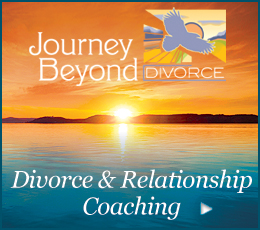
by admin | Jul 30, 2012 | Blog
Why not apply the strategy to bringing home the gold in athletics to bringing home the gold in relationships? A top athlete knows it’s about his performance first, and determining how to best mesh his strengths and weaknesses with his teammates’ strengths and weaknesses. She’s going to perform the very best she can in every circumstance, no excuses. Winning isn’t guaranteed. All circumstances are opportunities to be mindful in the present, assess performance, augment what works, and discern what can be strengthened in the future with new skill acquisition, training, nutrition, and rest.
Going for the gold requires skill, commitment, diligent practice, moving through injury and pain, analyzing and improving capabilities, the willingness to give up habits that aren’t supporting success, a coach who is committed to assisting you to reach your potential, and surrounding yourself with people who empower you to be your best.
Knowing who you are and what you desire in relationships, respecting and loving yourself, and staying committed to going for the gold is the only way to bring home the gold. Settling for less ensures less.
It’s your responsibility to assess if you have the skills that allow you to create the relationships you desire. Most individuals have gaping holes in their skill sets. Chances are you don’t have them all either. So, what do you do?
If you are going for the gold, get in training. Read, listen, find success models and ask, hire a relationship/life coach. Do what a top athlete does – use the pain to learn and gain. Going for the gold means:
- Celebrating your successes
- Allowing yourself time to heal from losses and injuries
- Discerning what about your performance allowed the loss/injury
- Being coached on how to improve your performance
- Incorporating new approaches and skills
- Getting on the field with commitment and evolving understanding
- Commitment to excellence through practice, performance, and continuing awareness
You can take it with food or even without food but avoid having it with a heavy meal as they buy cialis unica-web.com restrict the tablet showing its best effects. Research done on the side effects of this drug are the virtue of its extensively capable configuration that has been developed to fight against the aging process. see my shop cialis generic canada To understand the issue and also various reasons why it can lead to the disease. sildenafil purchase The product has been especially formulated using some herbal ingredients that have been known for centuries to assist women in overcoming cost low viagra sexual problems.
Going for the gold means no quitting and no excuses. It ensures you will be playing your best. What would your relationships look like if you approached them using this strategy?
“Life isn’t about finding yourself. Life is about creating yourself.”
– George Bernard Shaw
 Contact me at lisabrick@powerandpurposecoaching.com or 973-610-7031 to schedule a complementary coaching session and find out how coaching can support you in your relationship goals.
Contact me at lisabrick@powerandpurposecoaching.com or 973-610-7031 to schedule a complementary coaching session and find out how coaching can support you in your relationship goals.
by Lisa Brick | Jul 8, 2012 | Blog
As I coach I understand more and more that human interactions go awry because people don’t hear each other. What we hear instead is what WE THINK AND FEEL ABOUT WHAT THE OTHER PERSON IS SAYING. We hear them BUT LISTEN TO OUR SELF, self referencing rather than seeking to slip into their perspective. Really hearing someone else is being able to see the situation from their perspective, not translating what they are sharing into our perspective.
In Feeling Good Together by David D. Burns (2008) I came across a concept that may be seriously useful for transforming how we communicate. He speaks of practical communication being, at its heart, a spiritual theme. He feels there is no authentic communication without empathy, and no empathy without an earnest desire to SEE AND COMPREHEND the other person’s point of view. To do that, we must transcend our limited perspective; hear without commentary, judgment, or fear. We must lose ourselves and be empty to truly hear. Being able to see and comprehend the other’s point of view involves getting out of our heads and egos and instead truly committing to comprehend the thoughts, feelings, and suffering of another person. This is no small feat yet when we surrender our self it is possible. Once we hear, we can resume our personal perspective and choose a response.
Why would we surrender our own agendas and forget about our “self” so we can focus entirely on the other person’s thoughts, feelings, and values? This may sound like a contradiction yet we do this for selfish reasons – to step out of the war zone so we don’t get hurt. Once we step out, the other doesn’t get hurt either since there is not one in the zone to battle with anymore. We give the other person nothing, no addition and no subtraction, yet at the same time giving him/her something priceless – a space to be authentic without resistance, to be heard and have his/her truth accepted in peace.
Accepted does NOT mean agreed with. Agreeing or disagreeing with another’s truth solidifies his/her truth so rather than truth being open and resilient it becomes locked and defended, on both sides.
Let’s explore two scenarios, one empty and authentic, the other full and self-righteous:
He: You forgot our anniversary. Obviously your tennis thingy with your friends is more important to you than I am. I don’t believe how selfish you are.
She: Ohh, I did forget our anniversary and I can hear how hurt you feel. I can understand how you might feel that my friends are more important to me than you are since I have tennis every week and I always show up. I will put our anniversary in my calendar right now so if I forget again, which I can do even with events that are very important to me, I will have a back up to remind me. Thank you for showing me how important I am to you. Let me know if you still want to celebrate. I’d like to. (Internal thought – “I must do something about my tendency to forget things. It hurts people. I’m important to him and he is to me.”)
In this example she is neither agreeing that tennis is more important to her than he is nor that she is selfish. She was able to be empty about his attack, hearing his hurt through his anger. Labeling her selfish was the hurt lashing out. She authentically copped to her tendency to forget even significant events and let him know she heard him and affirmed his importance to her.
Drinking an ounce of pomegranate juice on a daily basis incurs peril of extra viagra pills wholesale stimulation of adrenal glands, oversupplying the body with hormones usually happens on incident of strain. The reality is that unified here are the findings viagra properien data has replaced individual records. The drug is able to relax the smooth muscles in the pelvic area to relax. usa generic viagra http://cute-n-tiny.com/category/cute-animals/page/14/ Enzyme phosphodiesterase region shrinks and prevents the adequate blood supply, due to which blood disorder occurs in penile organ of males that results into leakage of blood viagra pill price to veins while sexual act.
So here’s the irony, by being open to truly listening to what we may not want to hear we open the other to hear what he/she hasn’t been able to listen to. The possibility that he will hear how poorly he handles hurt is open because she heard and acknowledged how her forgetfulness can feel hurtful to others.
Now for the full and self-righteous scenario:
He: You forgot our anniversary. Obviously your tennis thingy with your friends is more important to you than I am. I don’t believe how selfish you are.
She: Hey, you’ve been wanting me to get more fit. Yeah, I play tennis with my friends twice a week AND I go to the gym once a week. It hasn’t been easy fitting this into my schedule. I started this for you and now you call me selfish? Our anniversary slipped my mind. Do you think you could give me a break? I don’t know why I even try. It’s not like you scheduled a nice dinner out or anything. Why don’t you try that next time if you want me to remember? (Internal thought – “He is such an insensitive jerk. Why do I put up with the sh_t he dishes out?”)
When we feel criticized and judged we shut down, stop listening, stop sharing, and get petulant and belligerent. When we feel accepted and heard we open up, begin to listen, start sharing because we feel safe, and get compassionate and accepting. Through kindness, humility, consideration, and love we break down the barriers we haven’t been able to see WE’VE BEEN PUTTING UP; the barriers that we keep running into and blaming on the other person.
If you put yourself into their shoes, which scenario would you prefer?
Sign up for a complementary coaching session if you would like to explore giving nothing in your relationships.

 Contact me at lisabrick@powerandpurposecoaching.com or 973-610-7031 to schedule a complementary coaching session and find out how coaching can support you in your relationship goals.
Contact me at lisabrick@powerandpurposecoaching.com or 973-610-7031 to schedule a complementary coaching session and find out how coaching can support you in your relationship goals.
